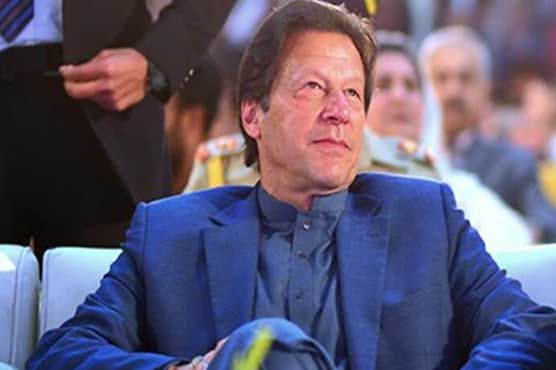E-commerce is most urgent need of domestic economy: PM Imran

PM Imran said the e-policy aims to facilitate small and medium-sized businesses.
ISLAMABAD (Dunya News) - Prime Minister Imran Khan on Friday said that e-commerce is the most urgent need of the domestic economy as the government’s goal is to remove the barriers of the business community.
He said the e-policy aims to facilitate small and medium-sized businesses. It also aims to remove barriers facing the business community.
The Prime Minister said that the State Bank and the Ministry of Finance should facilitate freelancers, educated and skilled youth to earn employment. “Both institutions should eliminate the barriers between the implementation of e-policy.
Meanwhile, Prime Minister Imran Khan directed the finance ministry to ensure the provision of uninterrupted funds to cope with the needs of the higher education sector regardless of the economic difficulties confronting the country.
Chairing a meeting to review the matters related to the Higher Education Commission (HEC), he directed to transfer financial powers to the HEC executive director, also the principal accounting officer of the institution, to avoid any delay in release of funds, a Prime Minister Office press release said.
Minister for Education Shafqat Mahmood, Planning Minister Asad Umar, Advisor on Institutional Reforms Dr Ishrat Hussain, special assistants to prime minister Dr Sania Nishtar, Dr Firdous Ahiq Awan, Dr Zafar Mirza, Usman Dar, Dr Moeed Yousuf, HEC Chairman Dr Tariq Binori, former Secretary and Consultant on Institutional Reforms Dr Fazal Abbas Mekan also attended the meeting.
The HEC chairman briefed the meeting on the reforms introduced by the commission, modernizing the higher education, and the issues being faced by the institution.
In his briefing, the education minister said the easy access to higher education for students, improving the quality of faculty and graduates and uplifting the research standards in accordance with modern day needs were the challenges facing the HEC.
He said the HEC had devised a comprehensive reforms programme to address the administrative issues as well as cope with the requirement of the capable human resource.
Dr Tariq Binori told the meeting that the HEC’s reforms programme consisted of the measures for students’ success, standards of the faculty, improvement of governance in universities, promotion of technology and research and financial stability of the universities.
He told the meeting that the 48-point reforms agenda encompassed all the issues confronting the higher education sector.
Dr Bionori said the HEC was working in coordination with the Ehsaas Programme, Kamyab Jawan Programme, health ministry, National Highways Authority, Public Private Partnership Authority, energy sector, national security and other institutions to ensure the utilization of youth’s skills for productive purposes.
He told the meeting that under Kamyab Shagird (successful disciple) programme, the HEC was striving to ensure the students’ standards at the time of admission as well as the capacity building of the faculty.
Moreover, on the cabinet’s directives, the HEC had formulated a national testing system for recruitment across the country.
Regarding the curriculum design, he said it should be done in a way to enhance the students’ capabilities in the relevant subjects as well as help improve his practical skills.
Similarly, the HEC was also giving special focus on the criteria of admissions in higher education, their counseling and quality research, he added.
The prime minister instructed the HEC to formulate the curriculum in a way to acquaint the youth about the Islamic teachings, eastern values, local culture and the philosophy of the great saints.
He said the onslaught of technology and western and other alien cultures posed threats to indigenous culture and traditions besides creating extremism by estranging the youth from the teachings of Islam and saints.
The prime minister also constituted a committee under the education minister to address the issues of resources, financial rules and regulations of the universities.
The committee would present a report to the prime minister recommending the steps to achieve the autonomy and improve their administration.
The prime minister also directed the education minister to formulate a joint strategy in coordination with the provincial governments to establish universities across the country, improve their standards and work out the matters concerning the curriculum and higher education.

